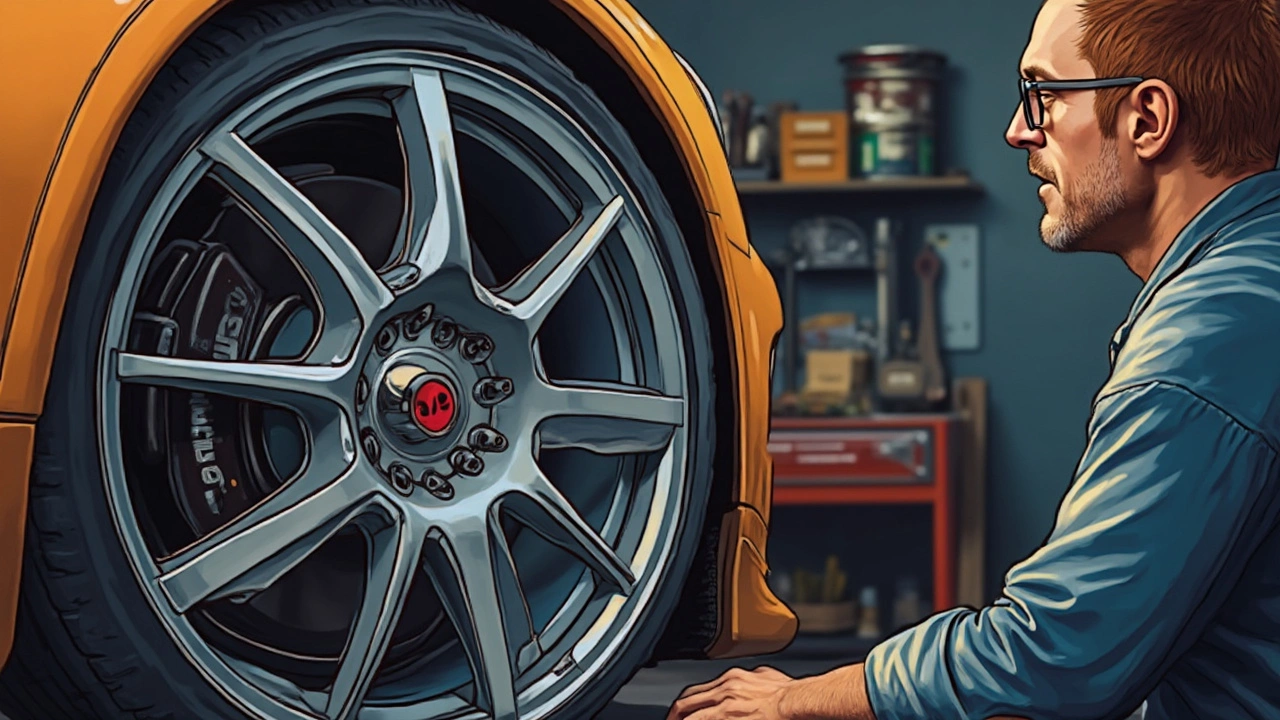Alloy Wheels – What You Need to Know
If you’ve ever stared at a set of shiny alloy wheels and wondered how long they’ll stay that way, you’re not alone. Alloy wheels can give your car a premium look, but they also need the right care to avoid rust, curb rash, and premature wear. Below we break down the real life expectancy of alloy wheels and share simple steps you can take right now to keep them looking fresh.
How Long Do Alloy Wheels Really Last?
Most manufacturers claim a lifespan of 8‑12 years for standard alloy wheels, but real‑world results vary. Factors like climate, road conditions, and driving style play a huge role. In dry, mild climates a well‑maintained set can easily hit the 15‑year mark. In salty coastal areas or places with heavy winter road‑salt use, corrosion can start showing up after just a few years.
Two common culprits that shorten life are curb rash and exposed brake dust. A single hard knock against a curb can dent the rim and weaken the structure, while brake dust left on the surface accelerates oxidation. Regular visual checks will help you spot these problems early.
Top Tips to Extend the Life of Your Alloy Wheels
1. Clean gently, often. Use a pH‑balanced wheel cleaner and a soft brush. Avoid harsh chemicals and steel wool – they can strip the protective clear coat.
2. Apply a protective coating. After cleaning, spray on a reputable wheel sealant or wax. This creates a water‑repellent layer that slows down corrosion and makes future cleaning easier.
3. Watch your parking spots. Try to avoid tight spots where you’re likely to hit the curb. If you must park close to a wall, use a wheel guard or rim protector to absorb impacts.
4. Inspect for damage regularly. Look for cracks, dents, or corrosion at the bead area (where the tire meets the wheel). Small issues can become costly repairs if ignored.
5. Keep brakes in check. Overly aggressive brake pads produce extra dust that can cling to the wheel surface. Consider low‑dust pads and clean the wheels after a hard brake session.
By incorporating these habits into your routine, you can add years to the life of your alloy wheels and keep them looking showroom‑ready.
Remember, alloy wheels are an investment in both style and performance. Treat them like you would any other valuable part of your car – with regular care, they’ll stay sharp and safe for miles to come.

Why Are Magnesium Wheels Illegal?
Magnesium wheels are illegal for street use because they can ignite under heat from braking, pose corrosion risks, and fail safety standards. Learn why they're banned and what safer alternatives exist.

How to Tell If Your Wheels Are Alloy
Learn how to tell if your car wheels are alloy or steel using simple tests like the magnet trick, weight check, and surface inspection. Know the real difference and why it matters for performance and value.

Alloy Wheels vs. Steel Rims: Which Is Really Better for Your Car?
Get a deep dive into how alloy wheels stack up against steel rims—style, performance, price, and practical tips. Make smarter choices for your car.

Alloy Wheels vs. Rim Wheels: Key Differences and Buyer’s Guide
Find out how alloy wheels and rim wheels differ, what each term really means, and get clear tips for choosing the best option for your car.

Is Upgrading to Alloy Wheels Worth It?
Thinking about swapping your car's wheels for some shiny alloy ones? Before you spend your hard-earned cash, let's find out if those sleek rims are more than just a pretty face. Dive into the benefits like improved performance and fuel efficiency, and consider potential downsides such as cost and durability. We'll weigh the pros and cons to see if upgrading to alloy wheels is the right move for your ride.

What is the Red Dot on Alloy Wheels?
The mysterious red dot on alloy wheels often puzzles car enthusiasts and drivers alike. This tiny mark plays a significant role in the proper alignment and balance of your wheels. Understanding its purpose can greatly enhance the installation process of new tires, ensuring a smoother ride. Dive into the specifics of what this red dot signifies, and learn how it relates to vehicle performance.

Scrap Value of Alloy Wheels: What You Need to Know
Discover the factors influencing the scrap value of alloy wheels, including the type of metal, wheel condition, and market fluctuations. This article provides practical tips on maximizing the returns from selling used alloy wheels. Learn the importance of metal recycling and its impact on pricing. Gain insights into how demand and supply dynamics in the metal market can affect scrap values. Equip yourself with essential knowledge to make informed decisions about recycling alloy wheels.

Do Alloy Wheels Scratch Easily? Understanding Durability and Maintenance
Alloy wheels are popular for their aesthetic and performance advantages but come with concerns about their propensity to scratch easily. This article delves into the factors influencing their susceptibility to scratches, industry insights, and expert tips for maintaining their pristine appearance. Explore various preventative measures and learn how to care for alloy wheels to extend their lifespan and enhance vehicle aesthetics.

Understanding the Cost of Alloy Wheels: Are They Worth the Money?
Alloy wheels are a popular choice for car enthusiasts due to their aesthetic appeal and performance benefits. However, their cost can vary significantly based on several factors such as design, brand, size, and manufacturing process. This article explores why alloy wheels might be expensive and provides tips on how to determine if they are worth the investment. Learn why manufacturers choose alloy and how these wheels can enhance your vehicle experience.